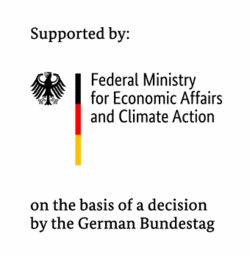Industrial Collective Research for SMEs: Continuous access to new knowledge

The AiF’s core activity is the so called Industrial Collective Research ("Industrielle Gemeinschaftsforschung", IGF). Collective research is a mechanism enabling businesses to solve shared problems through shared projects. Industrial Collective Research, funded by the Federal Ministry for Economic Affairs and Climate Action, gives SMEs access to a continuous stream of new knowledge which can be used to develop their own products, processes and services as well as giving them the opportunity to build up their individual innovation networks.
Research associations organise pre-competitive Collective Research
The AiF and its research associations organise pre-competitive Collective Research and provide comprehensive service support in research and development matters, helping small and medium-sized enterprises to meet the challenges of technological change. The research associations are members of the AiF and each of them represents a certain business sector from specific branches of the economy or fields of technology. By joining a research association and taking an active part in its committees etc., SMEs directly influence the association’s research agenda and priorities.
Key elements of Collective Research
- Industrial Collective Research is research for broad groups of enterprises, especially small and medium-sized enterprises.
- Each project must clearly demonstrate the economic added value of the research-work for enterprises in a given sector.
- Collective Research projects are proposed and managed exclusively by industrial associations.
- Collective research projects are performed by research institutes or universities selected according to their excellence.
- The involvement of SMEs in every research-project is guaranteed via project monitoring groups.
- Diffusion and technology transfer are performed by both, the involved industrial associations and the research institutes .
Preferred fields of research and development in Collective Research
- Prenormative standardisation, product standardisation: e.g. standard dimensions
- (Sectoral) Technical "tools": e.g. materials database
- Environmental solutions: e.g. emissions, dangerous substances, safety at work
- Generic industry demand: e.g. body scanning in clothing industry
- Basic technologies: e.g. alternative materials (cost/benefit, functional qualities)
- Process technologies: e.g. cost benefit analysis of alternative technical solutions
Collective Research evaluation process
About 200 experts from industry and research, organized in seven expert groups, are involved in the collective research evaluation process. If an expert group decides in favour of a project proposal, the AiF recommends it to the Federal Ministry for Economic Affairs and Climate Action for funding. After the ministry has given its approval, the AiF sees to the provision of funds to the research associations.
Research work
Research work is performed by research institutes contracted for a particular project by the responsible research association. About 1,200 university and other research institutes are continuously involved in the system of collective research. Relationships between particular research associations and institutes can be very strong. About 1/3 of the AiF-research associations run their own research institutes, mostly organised as private non-profit organisations. Other industrial research associations of the AiF work primarily or entirely with external research institutes such as universities. Institutes owned by research associations and university institutes each carry out about 40 % of German Collective Research projects. Other types of institutes and laboratories – such as Fraunhofer-Institutes – also take part in collective research.
Project monitoring committees consisting of industrial representatives are established in the research associations to monitor each project and ensure its continuing focus on industrial needs.
Results – available for all interested enterprises
After a research project has been completed, both research associations and institutes take part in the transfer and dissemination of results, for example through publications, conferences, work-shops, training of employees, exhibitions or fairs.
The results of collective research are available for all interested enterprises. The phase of competitive exploitation of results comes after the project has been completed and the results disseminated. Then individual companies may take up the results and adapt them to their specific needs.
Key figures
- Budget 2022: 181,0 Mio €
- Number of projects 2022: 1,765
- Institutes Involved 2022: 798
- Firms Involved 2022: 23,332
International Collective Research: CORNET